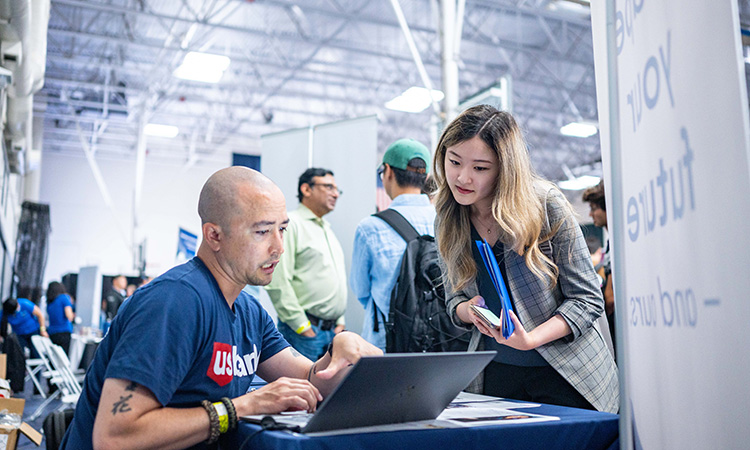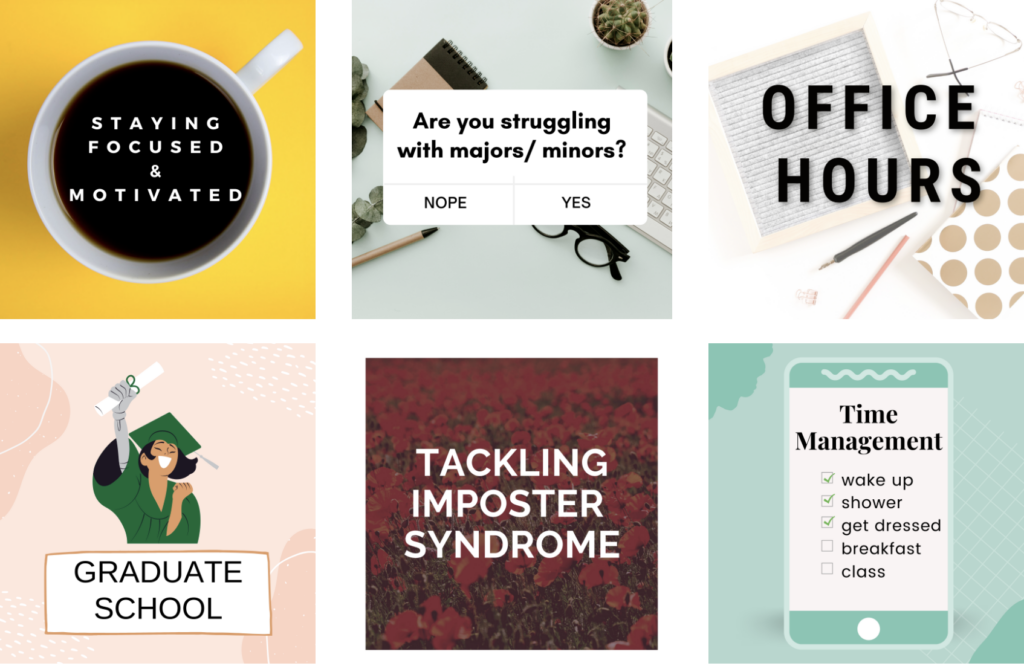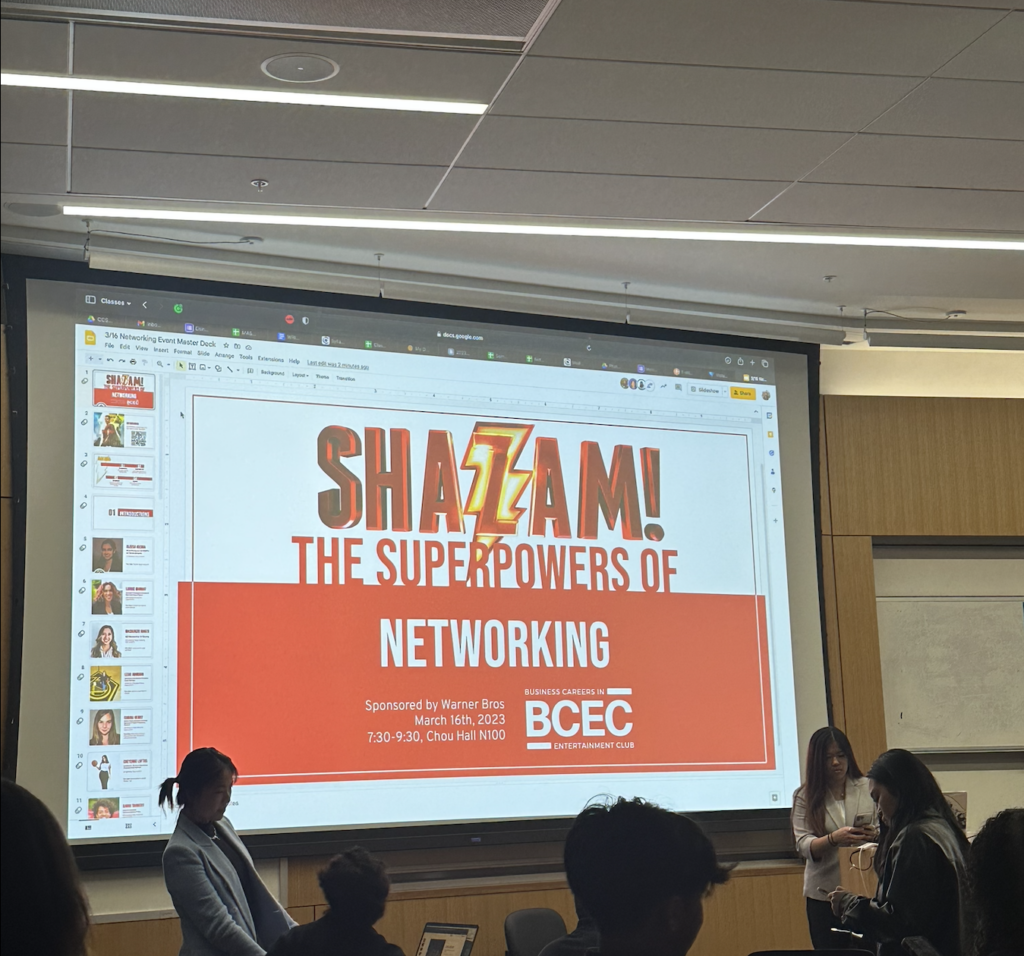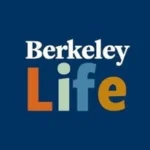
Discover Mentorships at UC Berkeley
Having a mentor can be very beneficial as a student navigating college life—but finding one isn’t always easy. Luckily, there are a wide variety of programs available on campus, and other ways to meet potential mentors, too! I’ve been a mentee/tutee in programs similar to the ones mentioned below since I was in middle school and I’ve served as a mentor and tutor as well. As someone who has been on both sides, I cannot say enough about the benefits of getting involved in these kinds of programs, whether as a mentee or mentor!
As a mentee, I’ve been able to talk through my plans for after graduation and learn about potential roles. My current mentor (who I was connected with through a program here on campus) is a journalist, and I actually got to experience her interviewing someone a few months back, which was invaluable to me because that’s a career path I’m considering. I’ve served as a tutor/mentor for younger kids for a couple of months on and off throughout the years as well, and it’s fun to hear from them and share what I’ve learned.
Peer Mentorship Programs
Many students end up finding support from other students and peers. Sometimes this is done informally, like meeting through classes and just becoming friends. Some programs focus on building these kinds of relationships more formally.
- Center for Financial Wellness (CFW) — CFW offers workshops and one-on-one appointments to help students manage their personal finances in college and beyond.
- College of Letters & Science (L&S) Peer Advisors — Current students are available to help answer questions about college requirements and other concerns you may have. You can meet with them in person or virtually.
- Golden Bear Orientation (GBO) Orientation Leaders (OL) — OL’s serve as mentors for incoming students, but they are also assigned an OL mentor and supervisor when onboarding and training begins.
- International Peer Mentorship Program — Around 10 incoming students are matched to one mentor. In the fall, mentorship groups participate in activities like one-on-ones with mentors.
- NAVCal (Navigating the University of California, Berkeley) — This fellowship helps incoming nontraditional students navigate campus through a high-touch approach. Current students coach and mentor incoming students, passing on their own knowledge and experiences to help incoming students adjust to college life. You can read more about one student’s NavCal experience in our blog, Discover NAVCAL & DSP Support.
- Residential Assistants (RA) — RA’s are built-in resources for anyone living in the residence halls. For an inside look at the life of a Berkeley RA, meet Nate.
- Transfer Mentorship Program — Incoming transfer students are matched with current transfers who have the same major or similar interests. Mentors are there to help transfer students adjust to life at Cal and answer questions. The Transfer Center also offers Academic Counseling.
- Student Clubs and Orgs — Some clubs have “big & little” pairings, where a current student club member or “big” can serve as either a mentor resource, a friend, or both. Here are some examples of other mentorship programs within clubs: the Association of Women in EE & CS provides mentorships as mentioned in Meet Calapalooza Clubs, and the Pilipinx American Alliance (PAA) hosts the KAApatid mentorship program as mentioned in Cal’s AA&PI Community.
Most of these programs are also regularly accepting mentor applications! For more ways to learn how to become a mentor, check out some of the organizations mentioned below under the “Become a Mentor Yourself!” section.
Campus Mentorship Programs
There are a lot of great departmental programs on campus designed to help guide students through their years at Berkeley. Here are just a few, including some that I’ve been a part of as a mentee.
- Berkeley Connect — This program matches you with a graduate student mentor and a small group of peers who share academic interests. I did this my first semester at Cal, and it was a great way of meeting other people who were interested in English (the topic and section I was enrolled in). You have a sit-down with the graduate student leading the course at least once during the semester as part of earning your units, and you can chat with them more throughout the semester if you’d like.
- L&S Mentors — Current UC Berkeley PhD students across the College of L&S departments offer one-on-one sessions and small group discussions to help support students.
- Major/Department Mentorship Programs — Check if your major or minor offers any mentorship opportunities. Here are some examples: the Berkeley Mentorship Court and the Transfer Mentor Program through Berkeley Engineering, The Bioengineering Mentor Program through the Bioengineering department, and the Geography Undergraduate Mentoring Program through the Geography department.
- Conexiones at Cal via the Chicanx Latinx Student Development Office (CLSD) — I’m currently a mentee in this program, something I wouldn’t have found out about if I wasn’t checking my email and subscribed to the CLSD’s mailing list! I was matched to a Cal Alumni named Olga who works as a journalist in the Bay Area. We meet up about once a month to talk about how things are going between the two of us, and she’s been a great resource for me to learn more about journalism, something I’ve been considering as a career after I graduate; not to mention it’s an intended minor of mine.

Common session topics in L&S Mentor talks. Image from the L&S Mentor website.
Professional Mentors
Established professionals, especially alumni, are usually more than happy to connect with students and answer questions about their career journeys, current roles, and companies. I’ve chatted with a lot of professionals in the past year by attending networking events. Here are some more ways you can get connected.
- Cal Alumni Mentors Program — Undergraduate students are matched with alumni who share stories and advice from their time at Cal to working in their current careers. This is hosted by the Cal Alumni Association’s Berkeley Career Network.
LinkedIn has a new rival? 👀 Just had coffee chats with professionals from AMC Networks and Bumble, BUT HOW? Through my.berkeley.edu ‼️ The portal that connects UC Berkeley students with thousands of UC Berkeley alumni for mentorship, networking, and career advice! All you need is your CalNet ID to sign up.✌️
#UCBerkeley #UCBerkeleyLife #Networking #CollegeLife #StudentLife

- Networking Events — I attend these events through the club Business Careers in Entertainment Club (BCEC), and also through Berkeley Career Center. Other clubs on campus also host these types of events; I recently went to the 5th Annual Women in the Workforce conference hosted by Berkeley Women in Business. Attendees who come to these events want to connect with students and share their experiences. Whomever you meet and connect with can turn into a potential mentor if you keep in touch.
- Coffee Chatting on LinkedIn — You can also reach out to professionals on LinkedIn to ask for an informational interview, also called coffee chats. Berkeley Career Engagement has a helpful guide to doing this, called the 5-Point Message.

Deck from a Business Careers in Entertainment Club (BCEC) Networking Event I attended.
Become a Mentor Yourself!
I hope this helped you find a mentorship program you want to apply for and get involved in! If you want to go the extra step and become a mentor yourself, here are some programs on campus you can learn more about.
-
-
- BUILD (Berkeley United in Literacy Development) — Each mentor is matched to three children who attend schools in the Berkeley and Oakland communities.
- Sage Mentorship Program — Mentors are matched to a student who attends a school in the Berkeley or Oakland community, forming connections through academic and extracurricular activities.
- Starting Point Mentorship Program — Community college students are paired with current UC Berkeley student mentors. This program is designed to encourage community college students from all backgrounds to prepare for a transfer to UC Berkeley and other 4-year universities.
- The Berkeley Mentor Collective is a way of matching first-gen upperclassmen with first-year first-gen students. Mentors and mentees meet online or in person at least five hours a month.
-
There are so many opportunities and programs out there, it can be hard to know where to start. It helped me to look for opportunities that tied in with my career interests, clubs I was involved in already, and my major and intended minors. Attending a networking event or emailing a program to find out how to get involved are two easy ways you can make connections to a mentorship opportunity during your time at Cal.
Melissa Mora-Gonzalez, Class of 2025, majored in English and minored in conservation and resource studies. Feature image by Dean Allen Poblete. Updated by the author in 2025; first published in 2023.
Want More?
- Learn about more resources at Cal: Wellness Resources, Creative, and Tech-Related
- How to stay in touch and discover more programs and resources.
- Meet Nina, an out-of-state student who found their community at Cal.
